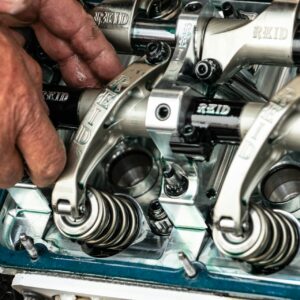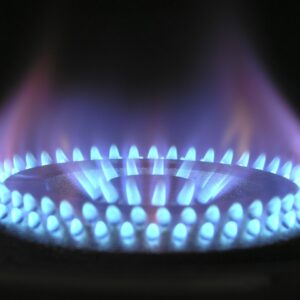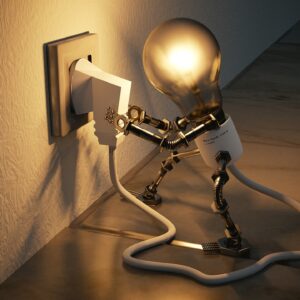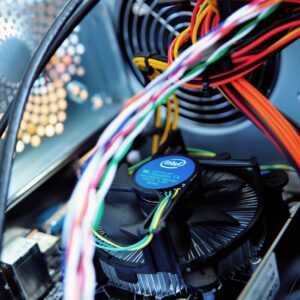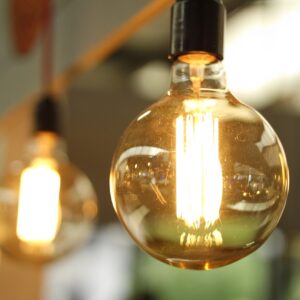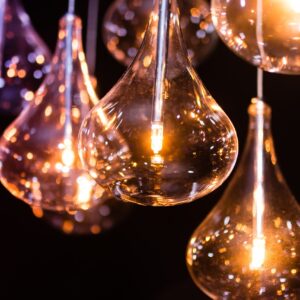You may not realize it, but power equipment is the lifeblood of modern society. From the machines that power our homes and offices to the tools that keep factories running, power equipment is everywhere.
But with all this equipment comes a significant problem: energy inefficiency. The energy needed to run power equipment is expensive and often harmful to the environment. That’s why understanding the energy efficiency of power equipment is crucial.
In this article, you will learn the basics of energy efficiency and the factors that affect power equipment efficiency. You will also discover strategies for improving equipment efficiency, including eco-friendly practices that can save you money on energy costs.
So, buckle up and get ready to dive into the world of power equipment efficiency. You may be surprised at how much you can save by making a few simple changes.
The Basics of Energy Efficiency
Learning the basics of energy efficiency is crucial for optimizing performance and reducing costs. When it comes to power equipment, energy consumption plays a significant role in determining its efficiency. The amount of energy consumed by the equipment directly affects the performance and operational costs. Therefore, understanding energy consumption and adopting energy conservation practices is essential.
Energy consumption can be defined as the amount of energy used by a piece of equipment to perform a specific task. It is measured in kilowatt-hours (kWh) and is directly proportional to the equipment’s power rating. The higher the power rating, the more energy the equipment consumes.
Energy conservation practices aim to reduce energy consumption by optimizing the equipment’s performance and minimizing wastage. These practices include using energy-efficient equipment, maintaining the equipment regularly, and turning off unused equipment.
By adopting energy conservation practices, you can improve the energy efficiency of your power equipment, reduce your operational costs, and contribute to a sustainable future.
Factors Affecting Power Equipment Efficiency
You’ll want to consider a variety of different factors if you’re looking to get the most out of your electrical devices. One of the most important factors to consider is the design of the equipment itself. The efficiency of power equipment is largely determined by the design considerations that went into it. For example, a device that is designed to minimize energy loss will be more efficient than one that doesn’t take energy loss into account.
Similarly, a device that is designed to operate at a lower voltage or current will use less energy than one that is designed to operate at a higher voltage or current. Another important factor to consider when it comes to the efficiency of your power equipment is maintenance requirements. Regular maintenance can help keep your devices operating at their highest level of efficiency.
This includes things like cleaning your equipment, replacing worn-out parts, and checking for any signs of damage or wear. If you neglect the maintenance of your devices, they may become less efficient over time, which can lead to higher energy costs and a shorter lifespan for your equipment. By taking the time to properly maintain your equipment, you can improve its efficiency and prolong its lifespan.
Strategies for Improving Equipment Efficiency
To get the most out of your power equipment, it’s important to implement strategies that can enhance their efficiency and extend their lifespan.
One way to achieve this is through smart automation, which involves using intelligent systems to regulate the functioning of your devices. This can help reduce energy wastage and optimize performance by ensuring that your equipment is only operating when it’s needed and using the minimum amount of power required.
Another important strategy for improving equipment efficiency is to establish regular maintenance routines. This can include tasks such as cleaning, lubricating, and replacing worn out parts to ensure that your devices are functioning at their best. By doing this, you can prevent breakdowns, reduce energy consumption, and extend the lifespan of your equipment.
Additionally, regular maintenance can help you identify potential issues before they become major problems, saving you time and money in the long run. By implementing smart automation and maintenance routines, you can optimize the efficiency and performance of your power equipment, ensuring that you get the most out of your investment.
The Importance of Energy Efficiency in Cost Savings
If you want to save money, it’s crucial that your devices are running efficiently and not wasting energy. One way to achieve this is by conducting an energy consumption analysis to identify areas where you can reduce energy usage. This can help you prioritize which equipment needs to be upgraded or replaced.
It’s also important to ensure that your devices are compliant with energy efficiency regulations to avoid penalties and fines. Implementing smart strategies such as turning off equipment when not in use, using power strips to manage energy consumption, and using energy-efficient products can also help save costs.
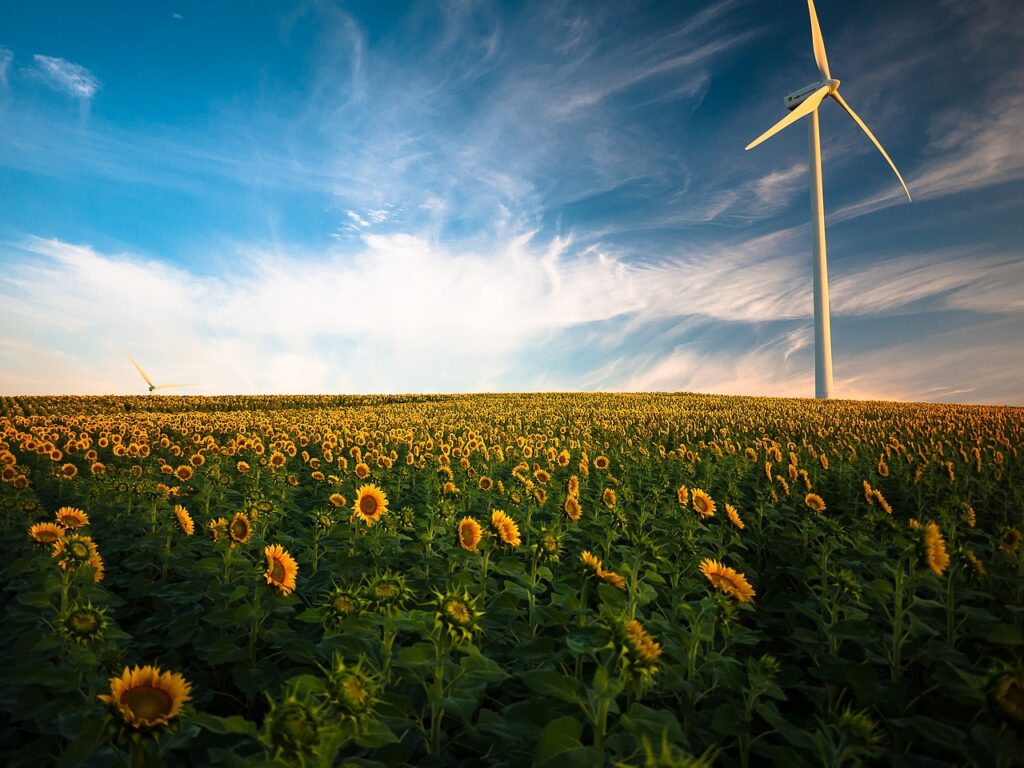
Regular maintenance can also play a significant role in keeping your equipment running efficiently. This includes cleaning filters, repairing leaks, and ensuring that everything is properly lubricated. By prioritizing energy efficiency and taking proactive measures to reduce energy waste, you can significantly reduce your energy costs and contribute to a more sustainable future.
Eco-Friendly Practices for Energy Efficiency
You can easily make a positive impact on the environment by adopting eco-friendly practices that will drastically slash your energy bills and save you a fortune in the long run.
One of the most effective ways to achieve this is by implementing sustainable solutions in your power equipment. This can be done by investing in energy-efficient appliances, such as refrigerators, air conditioners, and washing machines, which consume less energy and reduce your carbon footprint. Additionally, you can opt for green initiatives like solar panels, wind turbines, and geothermal systems, which harness renewable energy sources and provide a clean and sustainable source of power.
Apart from these, there are several other eco-friendly practices that you can adopt to improve the energy efficiency of your power equipment. For instance, you can switch to LED light bulbs, which consume less energy and last longer than traditional incandescent bulbs. You can also install programmable thermostats, which allow you to control the temperature of your home and reduce energy consumption when you’re not around.
By adopting these practices, you not only reduce your energy bills but also contribute to a cleaner and greener environment.
Frequently Asked Questions
What are the most energy-efficient power equipment options available on the market?
Looking for the most energy-efficient power equipment options on the market? Consider solar options and renewable alternatives. These choices not only reduce your carbon footprint, but also save you money on your energy bills.
With solar options, you can harness the power of the sun to run your home or business. Renewable alternatives like wind and hydropower are also great options for reducing energy consumption.
So, if you’re looking to make a positive impact on the environment while saving money, consider switching to these energy-efficient power equipment options.
How can power equipment efficiency be measured and monitored?
Imagine you’ve got power equipment you want to monitor for efficiency. You can measure efficiency using tools such as power meters, energy analyzers, and thermal imaging cameras. These tools track energy consumption and identify areas of waste. Real-time monitoring can be achieved using sensors and IoT devices, providing data on the equipment’s performance. Adjustments can then be made to optimize efficiency. By using these techniques, you can save both money and energy.
To summarize:
- Power meters, energy analyzers, and thermal imaging cameras measure efficiency.
- Real-time monitoring can be achieved using sensors and IoT devices.
- Adjustments can be made to optimize efficiency.
- These techniques can save money and energy.
Are there any government incentives or rebates for purchasing energy-efficient power equipment?
Looking to save some money on your power equipment purchases? You may be in luck!
There are a variety of energy efficient equipment incentives and government rebates available for those who make the switch to more efficient power equipment. These incentives and rebates can help offset the cost of new equipment, making it easier to upgrade to more efficient models.
So if you’re in the market for new power equipment, be sure to do your research and see if there are any incentives or rebates available to you!
How can maintenance and upkeep affect the energy efficiency of power equipment?
Preventive maintenance and regular upkeep are crucial for maximizing the energy efficiency of power equipment. Think of it like taking care of your car: if you neglect routine oil changes and tire rotations, your gas mileage will suffer, and your car will eventually break down.
The same principle applies to power equipment. In fact, according to energy audits, up to 30% of energy used in buildings is wasted due to inefficient equipment maintenance and operation. By scheduling regular maintenance checks and implementing energy-efficient practices, you can save money on utility bills and reduce your carbon footprint.
Don’t wait for your equipment to break down before taking action – invest in preventive maintenance to keep your equipment running smoothly and efficiently.
What impact does the location and climate of a facility have on power equipment efficiency?
When it comes to ensuring power equipment efficiency, the location and climate of your facility play a crucial role. The weather impacts how much energy your equipment consumes, and you must consider specific regional differences and climate considerations.
Thankfully, there are energy-efficient options available to help you reduce energy consumption and save on costs. You can also measure and monitor your equipment’s efficiency and take maintenance impact into account. Government incentives and rebates are also available to help you cover the costs of upgrading your equipment.
To maximize your savings, you can discuss ideas with other professionals in your industry.
Conclusion
Congratulations! You now have a better understanding of energy efficiency when it comes to power equipment. You know that energy efficiency is crucial for saving money and reducing carbon emissions.
But wait, there’s more! By taking the strategies for improving equipment efficiency seriously, you can achieve impressive results. You’ll be amazed at how much money you can save and how much you can reduce your carbon footprint.
So, keep up the good work and continue to implement eco-friendly practices that promote energy efficiency! Who knows, you might even become the next energy efficiency guru and inspire others to follow in your footsteps.
